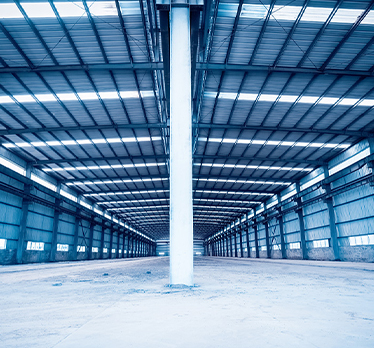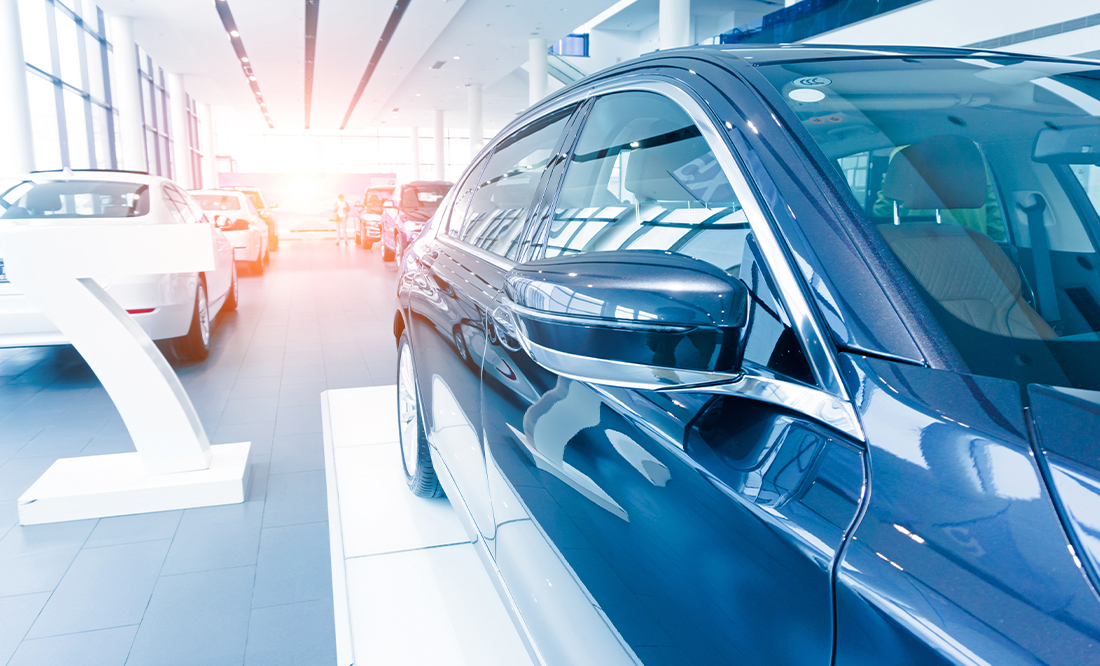
The motor trade certainly hasn’t experienced the dire consequences of sectors such as the high street, travel and hospitality. The high-profile liquidations, bankruptcies and litany of business failures, rescues and restructures needed by companies operating in the most vulnerable of sectors have so far been avoided by the retail motor sector.
However, despite the servicing and aftermarket part of the trade being deemed “essential” during the series of lockdowns experienced in the UK, the new and used car sales sector, whether independent or main dealer have seen sales through traditional physical showrooms decline, in favour of digital channels.
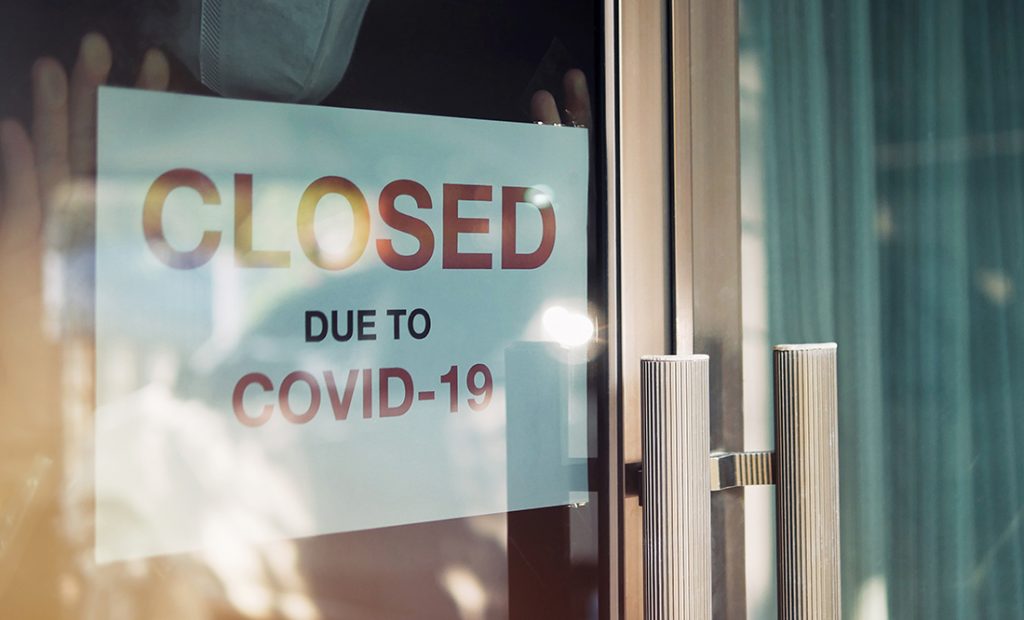
The question facing both main dealers, especially non-premium franchises, and many independent forecourts and motor dealerships is - how many businesses failures will happen, and which well-known auto traders will face liquidation or administration before life gets back to normal and sales recover?
Large retail groups and premium franchised dealers can take brave and expensive steps to avoid the threat of business failures created by the pandemic, such as the new virtual showrooms and digital infrastructure consumers now expect.
Supported by manufacturers, premium franchises and main dealers can offer sophisticated interactive online sales experiences by engaging customers with slick 3D images and walk -throughs of every permutation of specification, finish, interiors and extras. For customers who prefer a physical experience, a test drive or the familiar face-to-face experience, super hubs will provide a branded centre with a full model line-up and the chance to “touch and feel” the product, potentially supported by a nationwide network of service centres.
As Accenture put it in their report on the future of car retailing:
“Dealerships will remain the lynchpin of the automotive distribution chain and customer interaction—but not in their current form. The automotive dealerships of the future will be networked mobility hubs that engage, entertain and delight customers, and now is the time to start creating them.”
Despite their ability to adapt, the large groups may find that consolidation, the growth of brand super-hubs and a permanent shift online may lead to them being overstaffed and left with rent and rates on hugely expensive showrooms, built to demanding manufacturer specifications which may need to be disposed of and repurposed. The joint costs of potential redundancies, which may well be necessary for financial survival at the end of furlough, added to the burden of empty showrooms may challenge the less financially robust motor retailers lower down the pecking order.
Ultimately, this may lead to these businesses seeking business rescue, restructure, liquidation or administration. It’s important to note that businesses' first instincts may be to speak to an insolvency practitioner, but there are alternatives to liquidation and administration and the key to an effective strategy for business rescue, restructure and a creative property repurposing programme is to act quickly whilst there is room to manoeuvre. Planning a way out of a financial crisis requires early recognition of the mounting pressures and accepting help as soon as possible.
As David Colbeck of Corelco sums it up:
“Corelco put decades of business experience at the immediate disposal of business owners in the motor trade who are facing mounting pressure and business failure. Focusing solely on the interests of owners and directors, and free from regulatory oversight, Corelco seek new options and an alternative to traditional insolvency or liquidations.”

Whilst the picture is by no means certain for the major players, the limited resources and financial clout of independents and specialists make them even more vulnerable. The lockdown has disrupted both the demand side of the equation in the form of showroom visits, and the supply side in the shape of auctions. For now, the weekend social activity of browsing a local garage or aspirational specialist dealer is off limits - at the very time when new cars, sold online, are being heavily discounted.
Independents can of course keep a website up to date, manage socially distanced test drives and a limited click and collect service, when rules permit, but it is unlikely that they can compete with the seductive online experiences offered by the big car retailers and car supermarkets. With easy price comparison available at their fingertips, typical customers for independents can now negotiate from a position of strength - driving down margins!
For these reasons, many family businesses, trusted garages and independents are going to face tough times, with bankruptcy, business failure and liquidation around the corner. Without the support of the furlough scheme, with CBILs and Bounce Back loans spent, deferred tax and the spectre of personal guarantees being called in, there are bound to be increasing numbers of “worried directors”.
Little wonder that some business owners will look for an escape route, taking early retirement or seeking help from an insolvency practitioner who can oversee the least damaging insolvency. Many well-run businesses are facing multiple financial challenges for the first time, as a result of the pandemic. Knowing who to turn to is by no means obvious and reaching out to an insolvency practice may seem like the obvious first step in pursuit of a solution or a business rescue package. Whilst this may be the right decision for some businesses, they may find that they lose control of the process and their assets very quickly, as a largely pre-determined outcome unfolds.
There are alternatives, and Corelco can offer a range of unregulated restructure and rescue packages, including the creative repurposing of property that may lead to the retention of assets and the emergence of a new and stronger business – protecting the directors in the process.
For many owner-managed independents, the decision to cease trading is a colossal, emotionally charged personal decision representing a business failure which they have instinctively fought against, determined to save and rescue the business at all costs. Facing mounting pressures, directors and owner managers frequently act too late, accelerating the onset of liquidation and the appearance of insolvency practitioners in the equation, as a result of an unwillingness to accept the facts and ask for help.
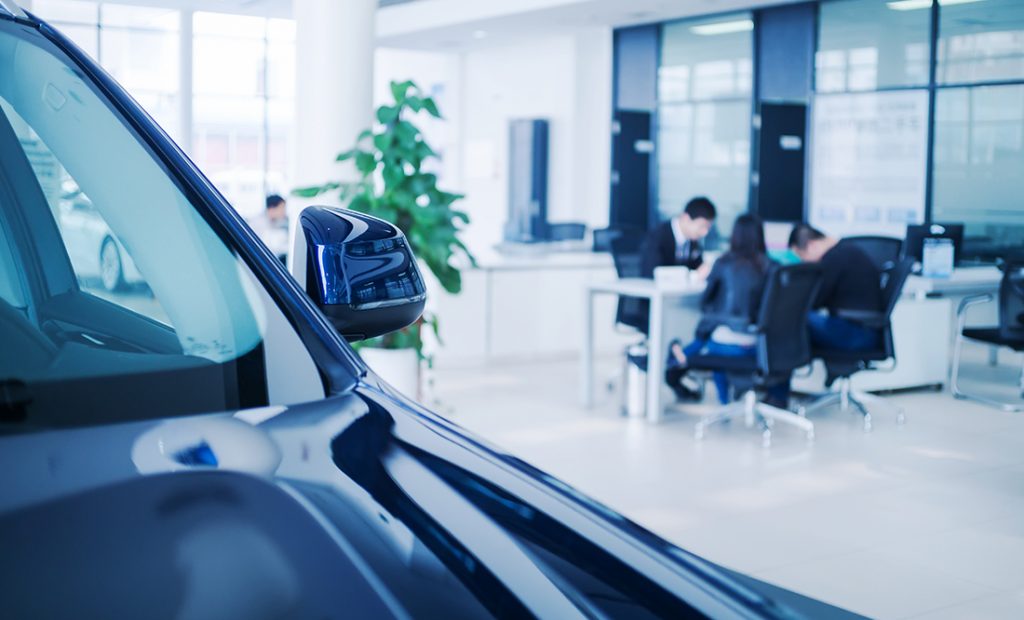
The major manufacturers and franchised dealers have invested heavily in high quality customer experiences, with showrooms that resemble upmarket hotel foyers or health clubs. These carefully planned and extremely comfortable retail spaces facilitate and lubricate the maximum upsell and cross sell opportunities to be teased out of face-to-face interaction.
Facing a limited level of enquiries, the lack of face-to-face communication and the absence of spontaneity combine to reduce the potential margin available from each enquiry. Customers no longer just drop in with a problem and incremental sales don’t happen without human contact.
For example, parts departments can’t sell up to fitting, sales consultants can’t cross sell lucrative gap insurance, warranties and accessories or upsell to a new or higher spec model. Instead, customers just order what they want, and they find it much easier to say no on the phone or avoid sales pressure altogether online.
Customers have more time to research and investment in the showroom experience is wasted. Pre-covid, once hooked into the brand experience customers were receptive to sell all sorts of things that can’t be sold easily on the phone.
Business observers and commentators have been predicting a shake down of the retail motor trade for years. In any paradigm shift, there are winners and losers, and in the motor sector there are multiple paradigm shifts.
sFirstly, there is the inevitable downward pressure on sales volume created by locking down entire countries. Add this to fears for long term job security caused by the pandemic and its easy to see why people are willing to defer large ticket item purchases for a while. Whether the disproportionate impact of the pandemic on lower income brackets will equate to more independent and non-premium franchised motor groups facing failure and being pushed into insolvency, liquidation or rescue packages such as business insolvency, only time will tell.
Secondly, online retailing has prospered at the expense of physical high street and showroom purchases. The purchase of cars with fewer, or even zero showroom visits, has accelerated a trend that has been quietly eroding main franchised dealer sales and profits for years. In this new world, physical motor dealerships and independent forecourts will need to reinvent themselves.
Thirdly, the push towards EVs has created disruption in the market. The rapid development of new models from both Tesla and mainstream brands, the ever-increasing ranges, the absence of charging infrastructure and the high initial up-front cost make it hard for consumers to judge when to enter the market.
Deferred purchases due to lack of familiarity with a new technology combined with profound economic uncertainty and dramatic changes in the buying process make for a pessimistic outlook.
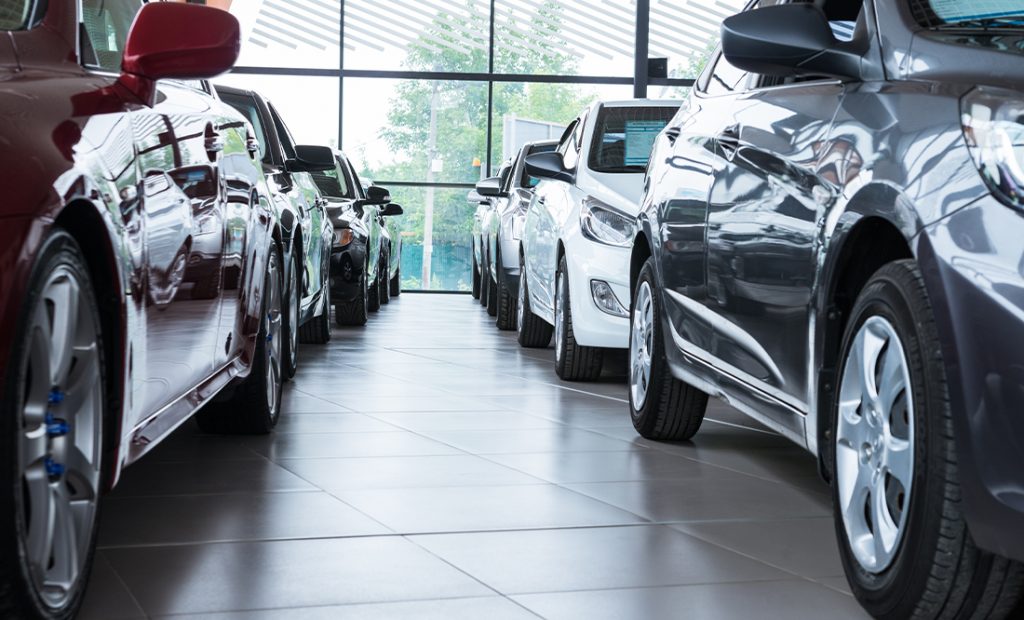
BuyaCar Editor, Christofer Lloyd, said:
“The race to clear newly registered cars from stock by selling them at huge discounts began almost as soon as 2021 got under way. One interesting aspect is the brands involved – ones that are typically considered to be at the more budget end of the market."
According to BuyaCar.co.uk:
“Looking ahead to the rest of this year it seems unlikely that the new car market will take off significantly until the worst of the coronavirus crisis has passed, so the discounts we are seeing are likely to continue for some time to come.”
By contrast, Startline Motor Finance said that experience from the first two lockdowns, plus the prospect of the national vaccination programme, means that the used car sector can be reasonably confident about its prospects for the next few months if it meets buyer needs.
Chief Executive, Paul Burgess, said:
“The key lesson from the pandemic so far is that if people are able to continue to buy used cars, they will do so – and in relatively strong and sometimes even exceptional numbers.”
“However, the used car businesses who thrived through these moments were those who made it easy within the new trading models for customers to buy. In lockdown situations, sales success is all about removing obstacles to purchasing.”
Burgess said:
“Lockdown places dealers in a situation where all sales are digital, based on a click-and-collect or home delivery model, and this unavoidably changes customer expectations. The fact is that 2021’s consumers expect digital processes to be fast, slick and easy. This is true whether they are buying cars from a dealer or cornflakes from Tesco.”
Figures released by the Finance and Leasing Association (FLA) show that the consumer car finance market reported a fall in new business volumes of 3% in October 2020 compared with the same month in 2019. In the ten months to October 2020, new business volumes in this market were 20% lower than in the same period in 2019.
The fall out from successive lockdowns is a growing concern for this sector. Ageing vehicle stock (particularly used cars) and limited opportunities to sell this stock as depreciation affects the value, are major concerns across the motor trade. Monthly stocking loans are still to be paid even when the customers are few and far between and the monthly writing down the value of used stock, in line with Glass’s Guide and the marketplace generally, is becoming harder and harder to accept.
Some 2020 model year new vehicles in stock will become harder to move as new models and facelifts planned by the manufacturers for 2021 loom nearer. The 2020 models will need to be disposed of with compelling deals and subsequent minimal profits or more likely, losses – further threatening the closure of previously profitable businesses.
In the midst of so much bad economic and financial news, there are fears of a tsunami of business failures across the economy. The motor trade has fared much better than many sectors, but the medium-term economic impact is not clear. Just as the high street was facing huge pressure to change, in the face of overwhelming competition from online retail, so must the motor sector rapidly adapt to the world of digital sales. This will be its route to avoiding aggressive mergers, defensive consolidations, the disappearance of local independents and the misery of insolvency and liquidations for directors and owners of long-established businesses, facing business failure.


